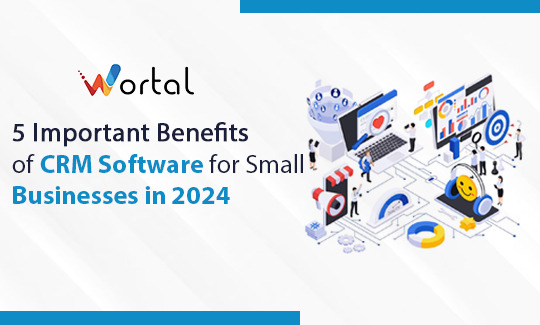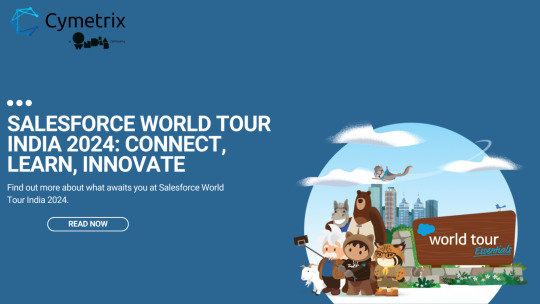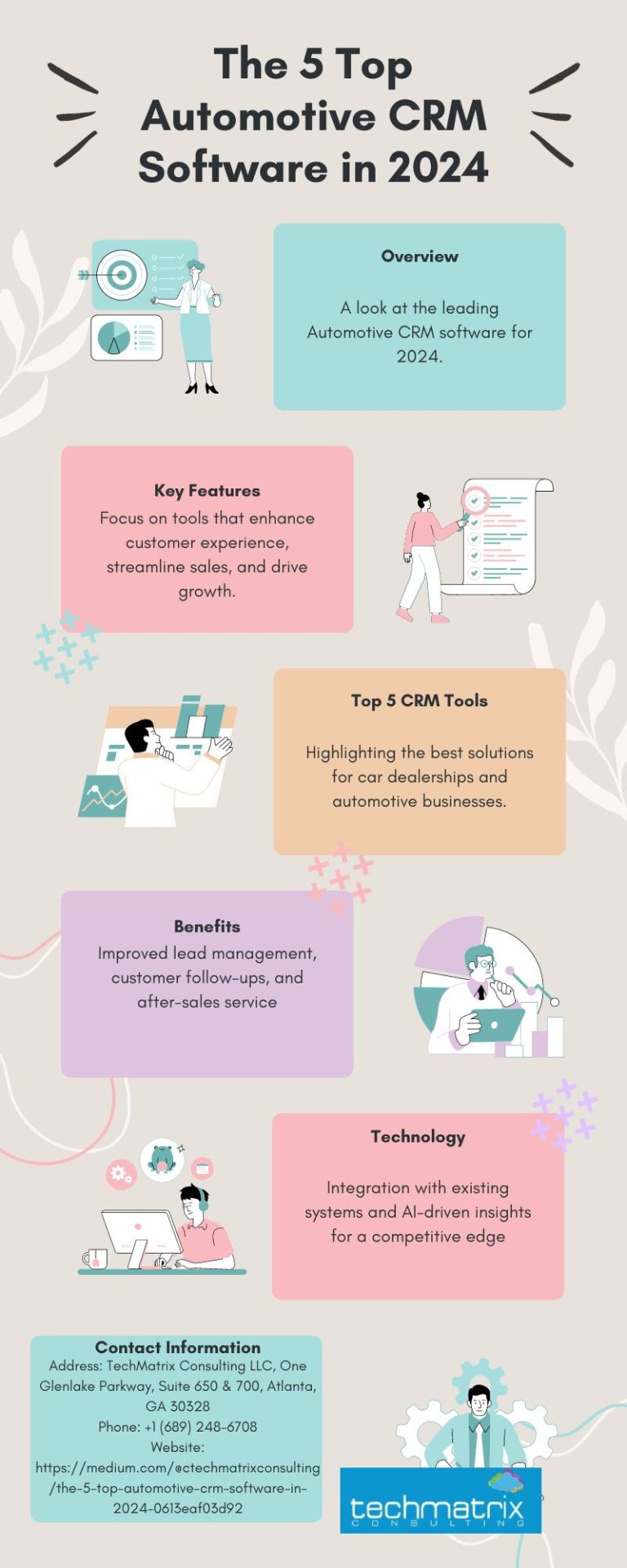#CRM software 2024.
Explore tagged Tumblr posts
Text
Compare Salesforce and NetSuite to find the best CRM for your business. Explore their differences in features, pricing, scalability, and integration capabilities to make an informed decision based on your organization’s needs.
#Salesforce vs NetSuite#CRM comparison#business CRM software#Salesforce features#NetSuite ERP#cloud CRM#CRM software 2024.
0 notes
Text
Erpnext is a Oman VAT erp system in Muscat Oman
#erp software#erp solution#best erp for small business 2024#erp systems#marketing#finance#accounting#crm software
6 notes
·
View notes
Text
#Hotel CRM Software Market Size#Hotel CRM Software Market Share#Hotel CRM Software Market Growth#Hotel CRM Software Market Trends#Hotel CRM Software Market Forecast Analysis#Hotel CRM Software Market Segmentation#Hotel CRM Software Market 2024#Hotel CRM Software Market CAGR#Hotel CRM Software Market Analyzer Industry
0 notes
Text
Zoho Product Vulnerabilities: Exploring Legacy Issues and New Security Threats in 2023-2024 @zoho #ZohoOne #ManageEngine #ZohoCRM #ZohoBooks
Legacy Vulnerabilities in Zoho Products and New Discoveries in 2023-2024: A Comprehensive Analysis Introduction Zoho Corporation is one of the most well-established software development companies, offering a wide range of products that include customer relationship management (CRM), office suite applications, and cloud-based business tools. Over the years, Zoho has gained a massive following,…
#Cybersecurity threats#Software security 2024#Zero-day vulnerabilities#Zoho CRM API#Zoho Mail phishing#Zoho ManageEngine#Zoho security#Zoho Vault encryption#Zoho vulnerabilities
0 notes
Text
Discover the best automotive CRM software solutions in 2024, designed to enhance customer relationships, streamline dealership operations, and boost car sales. These top-rated CRM platforms, including those offered by TechMatrix Consulting, provide features like lead management, customer tracking, marketing automation, and inventory management to optimize the entire sales cycle. Whether you’re a dealership or automotive business, these CRM tools help you deliver personalized services and improve customer retention. Stay ahead in the competitive auto industry with the most efficient automotive CRM systems
#automotive CRM software#top automotive CRM 2024#CRM customer relationship management#car sales software#dealership CRM solutions#automotive CRM tools#CRM for automobile industry#automotive dealership software#CRM for car dealers#TechMatrix Consulting
1 note
·
View note
Text
5 Important Benefits of CRM Software for Small Businesses in 2024

As small businesses strive to thrive in a highly competitive market, they increasingly rely on Customer Relationship Management (CRM) software to manage their customer interactions, enhance sales processes, and improve overall business efficiency. In 2024, CRM software continues to offer substantial advantages, empowering small businesses to build stronger relationships with their customers and achieve sustainable growth. Here are five key benefits of CRM software for small businesses this year.
1. Enhanced Customer Relationships
One of the most significant benefits of CRM software is its ability to help small businesses build and maintain strong relationships with customers. A CRM system centralizes customer data, providing businesses with detailed insights into customer preferences, purchase history, and behavior patterns. This information enables businesses to deliver personalized experiences, anticipate customer needs, and provide timely, tailored support. With the rise of customer-centric business models in 2024, small businesses that prioritize customer relationships will stand out in a crowded marketplace.
Moreover, CRM software facilitates consistent communication across various channels, ensuring that customers receive a cohesive experience regardless of how they interact with the business. By nurturing customer relationships through targeted communication and engagement, small businesses can increase customer satisfaction, loyalty, and retention rates.
2. Streamlined Sales Processes
CRM software plays a crucial role in streamlining sales processes, enabling small businesses to manage leads, track opportunities, and close deals more efficiently. With built-in tools for lead scoring, automated follow-ups, and sales management, CRM systems help sales teams prioritize tasks, reduce manual work, and stay organized. This level of automation ensures that no lead is overlooked, and sales efforts are focused on high-potential opportunities.
In 2024, CRM platforms are integrating more advanced features like AI-driven analytics and predictive modeling, which provide actionable insights into sales trends and customer behavior. These capabilities empower small businesses to make data-driven decisions, optimize their sales strategies, and ultimately drive revenue growth.
3. Improved Collaboration and Productivity
Collaboration is vital for small businesses where team members often wear multiple hats and need to work closely to achieve common goals. CRM software fosters collaboration by creating a unified platform where teams can share information, track progress, and manage customer interactions seamlessly. Features like shared calendars, task assignments, and real-time updates ensure that everyone is on the same page, reducing the risk of miscommunication or duplicated efforts.
Additionally, CRM software boosts productivity by automating routine tasks such as data entry, follow-up reminders, and reporting. This automation frees up valuable time for employees to focus on higher-value activities, such as nurturing customer relationships or developing new business strategies.
4. Better Data Management and Security
In today's digital age, data is a valuable asset for any business. However, managing and securing data can be particularly challenging for small businesses with limited resources. CRM software provides a robust solution for managing customer data effectively while ensuring compliance with data protection regulations.
Modern CRM systems offer secure cloud-based storage, regular backups, and encryption to protect sensitive customer information. They also provide data access controls, allowing businesses to restrict access based on roles and permissions. This level of security is crucial in 2024, as customers are more concerned than ever about data privacy and protection.
Furthermore, CRM software facilitates data analysis and reporting, helping small businesses gain valuable insights into customer behavior, sales performance, and market trends. These insights enable businesses to make informed decisions, identify opportunities for growth, and stay ahead of the competition.
5. Cost-Effective Marketing and Customer Retention
For small businesses with limited marketing budgets, CRM software is an invaluable tool for executing cost-effective marketing campaigns. By leveraging customer data, businesses can create highly targeted marketing campaigns that reach the right audience at the right time. CRM software allows for segmentation based on various criteria such as demographics, purchase history, or engagement levels, ensuring that marketing efforts are both efficient and effective.
In addition to customer acquisition, CRM systems also focus on customer retention. They provide tools to monitor customer satisfaction, track engagement, and identify at-risk customers who may require additional attention. By proactively addressing customer needs and concerns, small businesses can enhance loyalty and reduce churn rates, resulting in long-term profitability.
Conclusion
CRM software continues to be a game-changer for small businesses in 2024, offering numerous benefits that drive growth, efficiency, and customer satisfaction. By enhancing customer relationships, streamlining sales processes, improving collaboration, ensuring data security, and enabling cost-effective marketing, CRM systems provide small businesses with the tools they need to succeed in a competitive landscape. Investing in the right CRM solution is not just a smart decision but a necessary one for small businesses aiming for sustainable growth and success in the coming years.
0 notes
Text
0 notes
Text
Story of SaaS?

"SaaS" is a term that’s hard to ignore but what exactly does it mean? Imagine instead of dealing with the hassle of downloading and installing software on every device, you can access what you need instantly through the internet. That’s SaaS, or Software as a Service, a cloud-based solution that makes software more accessible, flexible, and user-friendly. Want to understand why SaaS is reshaping the way we use technology so let’s dive in!
Definition of SaaS
Software as a Service (SaaS) is a software distribution model in which applications are hosted by a service provider or vendor and made available to customers over the internet. This model contrasts with traditional software, where the software is purchased and installed on local machines or servers.
The concept of SaaS dates back to the 1960s when IBM and other companies offered mainframe computers on a time-sharing basis. However, the modern SaaS model we are familiar with started to gain traction in the late 1990s and early 2000s with the advent of the internet and advancements in cloud computing technology. Companies like Salesforce were pioneers in this space, demonstrating the potential of delivering software via the web. Proket is also a good example of Saas based CRM software where realtors get the feature of landing page builder for their PPC ad campaigns within seconds.
SaaS vs. Traditional Software
Traditional software models often require substantial upfront costs, installation on local machines, and ongoing maintenance. SaaS, on the other hand, is subscription-based, does not require installation, and is maintained by the service provider. This shift from ownership to service has made SaaS a popular choice among businesses of all sizes.
Key Characteristics of SaaS
Accessibility and Flexibility
One of the standout features of SaaS is its accessibility. Users can access the software from any device, at any time, as long as they have an internet connection. This flexibility allows teams to collaborate more effectively, regardless of location.
Cost-Effectiveness
SaaS typically operates on a subscription-based pricing model, which can significantly reduce the upfront costs associated with purchasing traditional software. This model also allows businesses to scale their usage based on their needs, paying only for what they use.
Automatic Updates and Maintenance
With SaaS based CRM updates and maintenance are handled by the service provider. This means users always have access to the latest features and security updates without having to manage these tasks themselves. It’s a hassle-free experience that ensures your software is always up-to-date.
Scalability and Integration
SaaS solutions are designed to scale easily with your business. Whether you need to add more users or integrate with other software solutions, SaaS platforms can adapt to your growing needs. This scalability is crucial for businesses that are expanding or experiencing fluctuating demand.
How SaaS Works
The Cloud Computing Foundation
SaaS is built on the foundation of cloud computing. This means the software is hosted on the cloud, and users access it via the internet. The cloud infrastructure is managed by the SaaS provider, which includes servers, databases, and networking components.
Cloud Infrastructure
The cloud infrastructure supporting SaaS is robust and designed to handle multiple users simultaneously. This infrastructure is typically spread across multiple data centers to ensure high availability and redundancy. The use of cloud technology allows SaaS providers to offer reliable and scalable services to their users.
SaaS Deployment Models
There are different deployment models for SaaS, including public, private, and hybrid clouds. Public SaaS is available over the internet and is accessible to any user with the necessary credentials. Private SaaS is hosted on a private cloud and is often used by organizations with specific security or compliance needs. Hybrid SaaS combines elements of both public and private deployments.
Subscription-Based Pricing Model
One of the defining features of SaaS is its subscription-based pricing model. Instead of purchasing a software license, users pay a recurring fee to access the software.
Benefits of Subscription Model
The subscription model offers several benefits, including predictable costs, flexibility to scale usage, and access to regular updates. It also reduces the financial burden of large upfront software purchases, making it an attractive option for businesses of all sizes.
Common SaaS Pricing Tiers
SaaS providers typically offer several pricing tiers to cater to different user needs. These tiers might include basic, standard, and premium plans, each offering varying levels of features and support. This tiered approach allows users to choose the plan that best fits their requirements and budget.
Advantages of SaaS
Enhanced Collaboration
SaaS tools are designed with collaboration in mind. They allow multiple users to access the same platform, share documents, and work together in real-time. This level of collaboration is particularly beneficial for remote teams and global organizations.
Reduced Time to Deployment
SaaS applications can be up and running in a matter of hours or days, compared to traditional software, which might take weeks or even months to deploy. This rapid deployment means businesses can start using the software almost immediately, without lengthy installation processes.
Global Accessibility
Because SaaS is delivered via the cloud, it’s accessible from anywhere in the world. This global accessibility is a significant advantage for businesses with distributed teams or international operations, allowing them to maintain consistent workflows regardless of geographic location.
Automatic Software Updates
With SaaS, users don’t need to worry about manually updating their software. The service provider takes care of all updates, ensuring that users always have access to the latest features and security patches. This automatic update process helps maintain software efficiency and security.
Popular Examples of SaaS
Proket
Proket, a leading SaaS customer relationship management (CRM) platform which offers various features like landing page creation for lead generation, project management, lead nurturing, team management and much more.
Google Workspace
Google Workspace, formerly known as G Suite, is a suite of productivity and collaboration tools, including Gmail, Google Docs, and Google Drive. It’s a prime example of how SaaS can enhance collaboration and efficiency within teams.
Microsoft 365
Microsoft 365 offers a suite of tools similar to Google Workspace, including Word, Excel, and Outlook. It’s available as a SaaS product, allowing users to access Microsoft’s powerful productivity tools from anywhere.
Zoom
Zoom has become synonymous with video conferencing, especially in the post-pandemic era. As a SaaS platform, Zoom allows users to host and join virtual meetings, webinars, and conferences with ease.
Final Words
SaaS has transformed the way we interact with software, offering unmatched convenience, flexibility, and cost-effectiveness. By eliminating the need for complex installations and ongoing maintenance, SaaS enables businesses and individuals to access cutting-edge technology from anywhere, at any time. Whether it's for collaboration, productivity, or specialized tools like Proket’s CRM, SaaS solutions are designed to meet the evolving demands of the digital age. As more organizations embrace cloud-based services, the impact of SaaS on the global technology landscape will only continue to grow.
#lead generation for realtors#Best Landing Page Software with CRM#CRM Landing Page Builder#Best Landing Page Software 2024#Landing Page Builder with CRM
0 notes
Text
SALESFORCE WORLD TOUR INDIA 2024: CONNECT, LEARN, INNOVATE

As Dreamforce 2024 approaches, there's another exciting event on the horizon for trailblazers in India. Salesforce World Tour is coming to Mumbai on June 19, 2024, at the Jio World Convention Centre. This event is a golden opportunity to immerse yourself in Salesforce innovation and propel your business forward. The event starts with a keynote session on AI+CRM+Data, followed by product demos, hands-on workshops, and networking opportunities. You'll hear inspiring success stories from industry leaders like 'JSW Steel' and 'Narayana Health' and connect with the vibrant Trailblazer Community. Explore the future of Salesforce and AI at the Campground, where live demos and expert sessions will help you understand how to harness the power of Einstein. Join this unmissable event and discover how Salesforce can elevate your customer success. Get ready to experience the future of AI CRM on June 19.
#salesforce#cymetrix software#cymetrix salesforce#dreamforce#dreamforce 2024#salesforce world tour#salesforce world tour india#salesforce world tour 2024#mumbai#generative ai#crm#data#crm software#india#salesforce events#salesforce meetups#salesforce events 2024
0 notes
Text
Customer Relationship Management (CRM) systems have evolved tremendously over the years. Hence, as businesses look to build stronger relationships with their customers, CRMs have become essential tools. In addition, it helps drive efficiency and improve customer satisfaction. Therefore, as we move through 2024, several key trends are set to shape the CRM landscape. Here’s a look at the top CRM trends to watch this year.
#website development#crm software for architects#crm software development#2024 CRM Software development trends#crm software#best crm for all business size
0 notes
Text

Official erpnext partner in Muscat Oman | +96879207782
#erp software#erp solution#erp systems#finance#accounting#crm software#marketing#ecommerce#best erp for small business 2024#erpsoftware
0 notes
Text
#crm software#saudi arabian gp 2024#realestate agent#germany#kenya#microsoft dynamics 365#united arab emirates#small business
0 notes
Text
#AI chatbot#AI ethics specialist#AI jobs#Ai Jobsbuster#AI landscape 2024#AI product manager#AI research scientist#AI software products#AI tools#Artificial Intelligence (AI)#BERT#Clarifai#computational graph#Computer Vision API#Content creation#Cortana#creativity#CRM platform#cybersecurity analyst#data scientist#deep learning#deep-learning framework#DeepMind#designing#distributed computing#efficiency#emotional analysis#Facebook AI research lab#game-playing#Google Duplex
0 notes
Text
#Hotel CRM Software Market Size#Hotel CRM Software Market Share#Hotel CRM Software Market Growth#Hotel CRM Software Market Trends#Hotel CRM Software Market Forecast Analysis#Hotel CRM Software Market Segmentation#Hotel CRM Software Market 2024#Hotel CRM Software Market CAGR#Hotel CRM Software Market Analyzer Industry
0 notes
Text

Discover the leading Automotive CRM software for 2024 that are revolutionizing customer relationship management in the automotive industry. This infographic highlights the top 5 CRM tools tailored for car dealerships and automotive businesses, focusing on features that enhance customer experience, streamline sales processes, and drive growth. From integration with existing systems to AI-driven insights, these CRM solutions offer the best in technology to keep you ahead of the competition. Whether you are looking to improve lead management, customer follow-ups, or after-sales service, these automotive CRM tools are your key to success in 2024
#Top Automotive CRM Software 2024#Best Automotive CRM Tools#CRM solutions for car dealerships#Automotive customer relationship management#Leading CRM software for automotive industry#Automotive CRM benefits 2024#CRM tools for automotive businesses#TechMatrix Consulting automotive CRM#Automotive CRM software features
1 note
·
View note